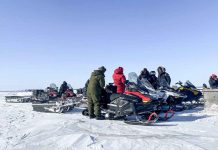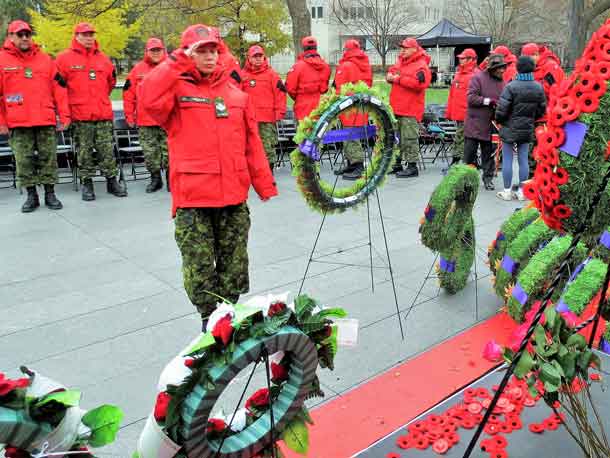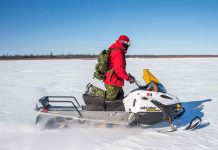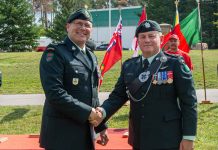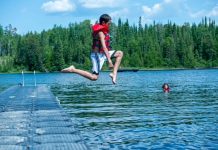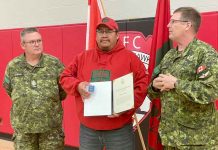By Peter Moon
A Canadian Ranger assisted in the rescue of a hunter from Nibinamik First Nation who was stranded alone at his remote hunting camp after suffering a stroke.
“It was an unusual situation and it shows exactly how flexible the Rangers are in responding to emergency situations in the North,” said Captain Ted Dinning of the Canadian Army. “The hunter’s life may have been saved. It all ended with a good result.”
Nibinamik is a small and isolated Oji-Cree community 500 kilometers north of Thunder Bay. Nibinamik is also known as Summer Beaver.
The hunter was hunting for moose near his trap line camp about 60 kilometers east of Nibinamik when he suffered the stroke. He had been dropped off at the camp earlier by chartered helicopter.
He used a satellite phone to call a relative in Nibanamik for help. The local Nishnawbe Aski Police in Nibanamik asked the Ontario Provincial Police for their help. The OPP asked the Canadian Army for aid and the assistance of the Ranger patrol in Nibanamik was authorized. The Rangers are part-time army reservists.
A helicopter was located in Webeque, 80 kilometers west of Nibanamik, and it flew to Nibinamik where Corporal Leo Oskineegish was organizing a Ranger rescue mission, which would have been lengthy and difficult because the only way to get to the hunter was by boat.
When the helicopter arrived Corporal Oskineegish and Constable Shawn Langlois of the local Nishawbe Aski Police detachment boarded it and flew to the hunter’s camp and brought the sick man back to Nibinamik.
The hunter was examined at the community health centre and released after it was determined his stroke was a mild one.
“It’s a good feeling as a Ranger to be able to help someone in the community in an emergency,” said Corporal Oskineegish.
(Sergeant Peter Moon is the public affairs ranger for the 3rd Canadian Ranger Patrol Group at Canadian Forces Base Borden.)



